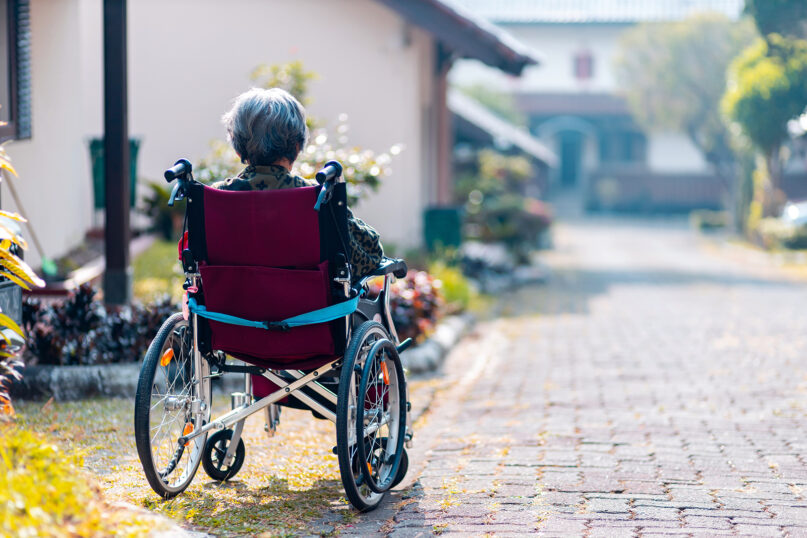(RNS) — When do we stop counting an individual as one of “us”? Us the living?
It’s becomes a pressing question in recent years as the intellectual and moral foundations that secure vulnerable populations of human beings their fundamental human rights are undermined. Currents in medicine and medical ethics have been influenced by the wider culture’s secularizing and irreligious trend.
As health care resources become more scarce, one population at risk is those human beings with late-stage dementia, who are increasingly thought to have had “their personal identity destroyed” by their disease — and thus not owed life-sustaining treatment or care.
SERIES: Dementia and religion
Profoundly disabled human beings have been losing status as fully valued human beings since at least 1968, when Harvard bioethicist Henry K. Beecher claimed that a failure to accept a neurological definition of death — a failure to pull the plug on the “brain-dead” — meant that “the curable, the salvageable, can thus be sacrificed to the hopelessly damaged and unconscious who consume the time and space and money better devoted to those who could be helped.”
There is little to prevent Beecher’s claim reaching well beyond brain death to human beings with late-stage dementia — and perhaps beyond.
In 2019, a New York Times story recounted the last days of Alma Shaver, a wife and mother who was sliding into the later stages of dementia. She knew her name, but not her age. She forgot the faces of her children and how to sew. And things were getting worse: Alma was slipping “beyond a murky fog that her husband could not join,” according to the story. Her husband’s response was to shoot his wife in her sleep and then shoot himself.
The reporter did not describe this as a horrific murder-suicide or domestic violence built on ableism and male aggression. On the contrary, the author went out of her way to paint Alma’s husband as a sympathetic figure, strongly implying that the killing was justified.
The Times was criticized online for that framing, and for the moment its take seems to be a minority position. But many more people ignore the evolution we are watching. Wendy Perry, acting head of learning and development at the Dementia Services Center at the University of Stirling in Scotland, makes a simple yet profound point: “I can quickly shut a conversation down simply by telling people what I do for a living. Most often it is easier to not recognize that that stage of the disease process even exists.”
RELATED: New report urges congregations to aid family caregivers
But we can no longer be silent. Many of us will face dementia, and many more have already faced it, are facing it now or will face it in the future in a loved one. If the hundreds of messages I’ve received in reaction to some of my media appearances on this issue during the pandemic are any guide, a profound level of pain and anger surrounds the state of dementia care in the United States.
Doing nothing either lets the problem fester or gives ground to those who will solve the problem by marginalizing and even discarding those with late-stage dementia and other disabilities as human nonpersons. At this point neither option is acceptable.
It is time to stand up, be heard and sound the alarm. We have put ourselves on a cultural trajectory that leads naturally and logically to claiming that millions of human beings with a profound intellectual disability do not have fundamental equality with the rest of us.
This piece is adapted from Charles Camosy’s new book, “Losing Our Dignity: How Secularized Medicine is Undermining Fundamental Human Equality,” published July 15 by New City Press. Camosy and four others will take part in a webinar July 26 titled “Dignity and Dementia: Mapping the Church’s Response to the Coming Crisis.”





